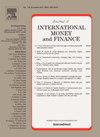Financing sustainability: Sustainable institutional investors and bank loan access
IF 3.3
2区 经济学
Q2 BUSINESS, FINANCE
引用次数: 0
Abstract
This study examines the role of sustainable institutional investors in enhancing portfolio firms’ access to bank loans. Utilising the Principles for Responsible Investment (PRI) signatory status as a marker of commitment to responsible investing, we find that being held by these responsible investors not only enables firms to borrow more but also at a lower cost. Further analysis shows that the advantages in loan market access are due to the presence of sustainable institutional investors serving as a signal of the credibility of firms’ ESG profiles, which aligns long-term growth goals and reduces shareholder–creditor conflicts. Being held by sustainable institutional investors also allows firms to avoid green and sustainability-linked loans that, whilst supporting their ESG development, require stricter monitoring than conventional loans. Additionally, we document that the negative relationship between sustainable investors and carbon emissions is more pronounced for firms that have obtained loans compared than those that have not. Overall, this study highlights the importance of financing support for sustainable institutional investors in fulfilling sustainability commitments and highlights the synergy between different financial markets in curbing carbon emissions.
融资可持续性:可持续的机构投资者和银行贷款渠道
本研究考察了可持续机构投资者在促进投资组合公司获得银行贷款方面的作用。利用负责任投资原则(PRI)签署国身份作为负责任投资承诺的标志,我们发现由这些负责任的投资者持有不仅使公司能够以更低的成本借入更多资金。进一步的分析表明,贷款市场准入的优势是由于可持续机构投资者的存在,这是公司ESG档案可信度的信号,这符合长期增长目标,减少了股东与债权人的冲突。由可持续机构投资者持有也使企业可以避免绿色和与可持续发展相关的贷款,这些贷款虽然支持其ESG发展,但需要比传统贷款更严格的监督。此外,我们还发现,与没有获得贷款的公司相比,获得贷款的公司的可持续投资者与碳排放之间的负相关关系更为明显。总体而言,本研究强调了融资支持对可持续机构投资者履行可持续发展承诺的重要性,并强调了不同金融市场在遏制碳排放方面的协同作用。
本文章由计算机程序翻译,如有差异,请以英文原文为准。
求助全文
约1分钟内获得全文
求助全文
来源期刊

Journal of International Money and Finance
BUSINESS, FINANCE-
CiteScore
4.20
自引率
4.00%
发文量
141
期刊介绍:
Since its launch in 1982, Journal of International Money and Finance has built up a solid reputation as a high quality scholarly journal devoted to theoretical and empirical research in the fields of international monetary economics, international finance, and the rapidly developing overlap area between the two. Researchers in these areas, and financial market professionals too, pay attention to the articles that the journal publishes. Authors published in the journal are in the forefront of scholarly research on exchange rate behaviour, foreign exchange options, international capital markets, international monetary and fiscal policy, international transmission and related questions.
 求助内容:
求助内容: 应助结果提醒方式:
应助结果提醒方式:


